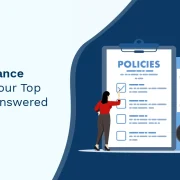Story-Based Learning: Immerse yourself in knowledge through the power of narrative. Story-Based Learning leverages the engaging nature of storytelling to deliver educational content, making learning more memorable, relatable, and effective. By weaving concepts into compelling stories, we enhance understanding, improve retention, and foster a deeper connection with the subject matter. Discover how Hurix Digital uses Story-Based Learning to transform traditional education into captivating learning experiences.
What is Story-Based Learning?
Story-Based Learning (SBL) is an instructional design approach that leverages the power of narratives to engage learners and facilitate knowledge acquisition. Instead of presenting information in a dry, abstract manner, SBL immerses learners in compelling stories that contextualize the learning material.
At its core, SBL utilizes the inherent human connection to storytelling. Stories create emotional resonance, making the learning experience more memorable and impactful. This approach typically features relatable characters, captivating plots, and realistic scenarios that learners can connect with on a personal level.
SBL goes beyond simple storytelling; it’s about strategically weaving learning objectives into the narrative fabric. The story acts as a vehicle for delivering key concepts, principles, and skills. Learners progress through the story by actively participating, making decisions, and solving problems, which reinforces their understanding and application of the material.
The benefits of SBL include increased engagement, improved knowledge retention, enhanced critical thinking skills, and the development of empathy. By transforming learning into an interactive and emotionally resonant experience, SBL makes education more effective and enjoyable.
In essence, Story-Based Learning transforms the learning process from passive consumption to active participation, fostering a deeper and more meaningful understanding of the subject matter.
Why is Story-Based Learning Important?
Story-Based Learning (SBL) isn’t just about entertainment; it’s a powerful pedagogical approach that significantly enhances the learning experience. Its importance stems from its ability to deeply engage learners, fostering better retention and understanding.
Firstly, stories provide context and relevance. Abstract concepts are made relatable and memorable when presented within a narrative. Learners see how knowledge applies to real-world situations, increasing their motivation and making the information easier to grasp. A compelling story can transform dry facts into engaging insights.
Secondly, SBL promotes emotional connection. Stories evoke emotions, and emotionally engaged learners are more likely to be attentive, curious, and invested in the learning process. This emotional resonance helps solidify memories and strengthens comprehension.
Thirdly, stories encourage critical thinking and problem-solving. Learners are challenged to analyze characters’ motivations, predict outcomes, and draw conclusions, developing essential cognitive skills. By embedding problems within a narrative, SBL encourages learners to actively participate in finding solutions.
Finally, Story-Based Learning is inherently memorable. The narrative structure and emotional connection make information stick. Learners are more likely to recall the lessons learned from a story long after a traditional lecture would be forgotten. This leads to improved long-term retention and a more profound understanding of the subject matter, leading to effective knowledge transfer.
How Does Story-Based Learning Work?
Story-Based Learning (SBL) leverages the inherent power of narrative to create engaging and effective learning experiences. Instead of passively receiving information, learners actively participate in a story, making decisions and experiencing the consequences of their choices.
Here’s how it generally works:
- Contextualized Learning: Learning content is embedded within a compelling narrative that provides context and relevance. The story acts as a container for the core concepts, making them more memorable and relatable.
- Problem-Solving Focus: Learners are presented with challenges or problems within the story that require them to apply the knowledge being taught. They need to actively think about how to solve these problems using the skills and information provided.
- Decision-Making: SBL often incorporates branching scenarios where learners make choices that impact the story’s direction and outcome. These decisions reinforce understanding and allow learners to see the direct impact of their choices.
- Active Engagement: The interactive nature of SBL requires active participation. Learners are not just reading or listening; they are involved in shaping the narrative and its resolution.
- Feedback and Reflection: As learners progress through the story, they receive feedback on their decisions and actions. This feedback helps them understand the concepts better and encourages reflection on their learning process.
- Emotional Connection: Stories can create an emotional connection to the content, increasing engagement and knowledge retention. By relating to characters and situations, learners are more likely to remember and apply what they’ve learned.
By immersing learners in a narrative, SBL transforms learning from a passive experience into an active and engaging journey, resulting in better understanding, retention, and application of knowledge.
Examples of Story-Based Learning in Action
Story-Based Learning (SBL) isn’t just a theoretical concept; many leading brands leverage its power to engage and educate their audiences. Here are some prominent examples:
Procter & Gamble (P&G): P&G uses SBL extensively in their training programs. For instance, sales training modules often incorporate narratives where trainees assume the role of a sales representative navigating challenging customer scenarios. By experiencing the story and making decisions within it, they develop critical thinking and problem-solving skills in a safe, simulated environment. This approach ensures employees understand and internalize best practices more effectively than traditional methods.
McDonald’s: McDonald’s leverages SBL to improve customer service and operational efficiency. They use animated story-based training videos that present common workplace situations, like handling customer complaints or managing peak-hour rushes. These videos illustrate best-practice responses and their positive outcomes, allowing employees to learn from relatable scenarios and improve their on-the-job performance.
Nike: Nike uses SBL to connect with their audience on an emotional level and promote their brand values. Their advertising campaigns often feature compelling narratives about athletes overcoming challenges and achieving their goals. These stories resonate with viewers, inspiring them and associating Nike with themes of perseverance, determination, and success. By creating a meaningful connection, Nike strengthens brand loyalty and drives sales.
IBM: IBM incorporates SBL in its onboarding process for new employees. Instead of simply presenting information about company culture and procedures, they use interactive storytelling to immerse new hires in the IBM world. These narratives help employees understand the company’s history, values, and vision in an engaging and memorable way, fostering a sense of belonging and accelerating their integration into the organization.
These examples demonstrate the versatility of SBL. From training and onboarding to marketing and brand building, SBL helps brands create more engaging, effective, and memorable experiences for their audiences.
Key Benefits of Story-Based Learning
Story-Based Learning (SBL) leverages the power of narrative to enhance the learning experience, offering numerous advantages over traditional instructional methods. Its key benefits include:
Enhanced Engagement & Motivation: Stories naturally captivate our attention. SBL increases learner engagement by presenting information within compelling narratives, fostering a deeper emotional connection to the subject matter and boosting motivation to learn.
Improved Knowledge Retention: Information embedded in a story is more memorable than isolated facts. SBL aids in long-term retention by creating meaningful contexts and associations, making it easier for learners to recall and apply what they’ve learned.
Development of Critical Thinking Skills: Stories often present challenges, dilemmas, and multiple perspectives. SBL encourages learners to analyze situations, evaluate different viewpoints, and develop critical thinking skills to understand and resolve the narrative’s core issues.
Stronger Emotional Connection & Empathy: By stepping into the shoes of characters and experiencing their journeys, learners develop empathy and gain a deeper understanding of different perspectives. This fosters emotional intelligence and enhances their ability to connect with others.
Increased Relevance & Applicability: SBL demonstrates the practical application of knowledge by placing concepts within real-world scenarios. This helps learners understand the relevance of the material and how it can be applied in their own lives or work.
Facilitates Deeper Understanding: Stories present complex concepts in a simplified, relatable manner. SBL promotes a deeper understanding by contextualizing information and making it easier for learners to grasp abstract ideas.
Better Collaboration: Story-Based Learning often inspires discussions and collaborative problem-solving as learners analyze narratives together and share their interpretations. This helps develop teamwork and communication skills.
Common Misconceptions Around Story-Based Learning
Story-Based Learning (SBL) is often misunderstood, leading to its underutilization or ineffective implementation. Clearing up these common misconceptions is crucial for realizing its full potential.
Misconception 1: SBL is Only for Children. While stories are effective for engaging young learners, SBL is equally potent for adult learning. Complex concepts can be simplified and made relatable through narratives, enhancing comprehension and retention for all ages. SBL in corporate training, for example, can effectively convey complex information and improve knowledge adoption.
Misconception 2: Any Story Qualifies as Story-Based Learning. Simply adding a story to content doesn’t automatically make it SBL. An effective SBL experience requires a carefully crafted narrative that is specifically aligned with learning objectives. The story needs to actively engage learners, provide opportunities for problem-solving, and encourage critical thinking.
Misconception 3: SBL is Just Entertainment. While engagement is a key component, SBL is not solely about entertainment. The purpose of the story is to facilitate learning, transfer knowledge, and develop skills. A well-designed SBL experience blends entertainment with educational value to achieve specific learning outcomes.
Misconception 4: SBL is Difficult to Implement. Although designing an effective SBL experience requires planning, modern authoring tools and instructional design principles simplify the process. The availability of various templates, story frameworks, and interactive elements makes it easier than ever to integrate SBL into learning programs.




